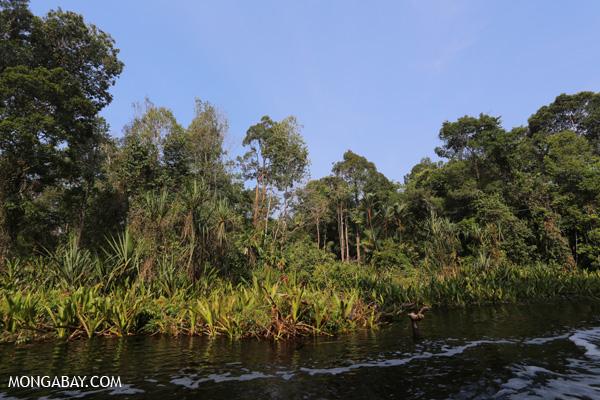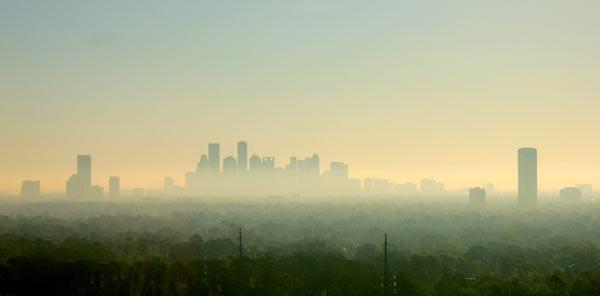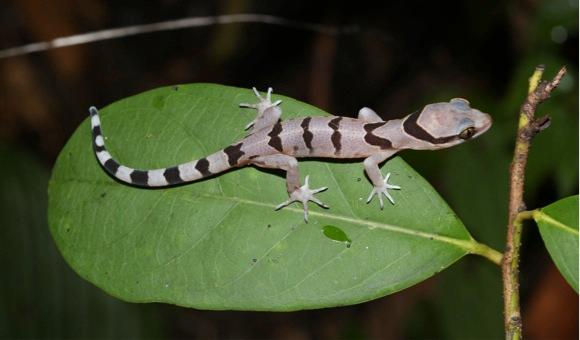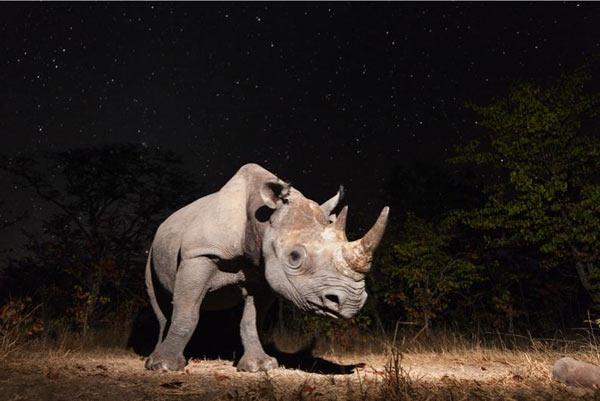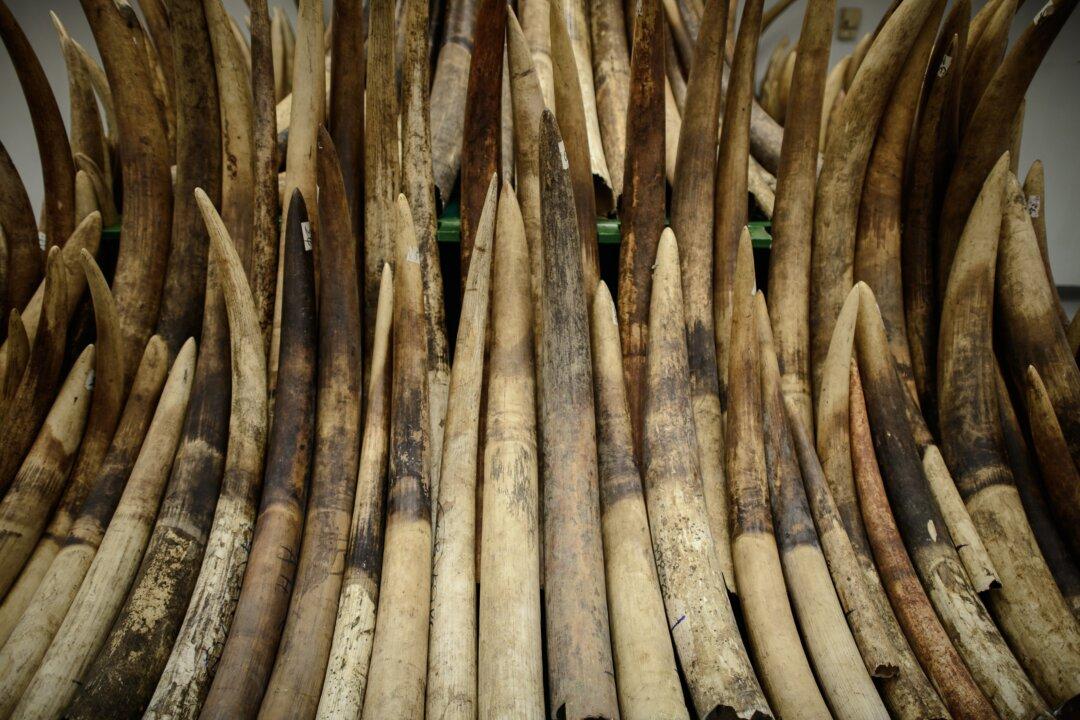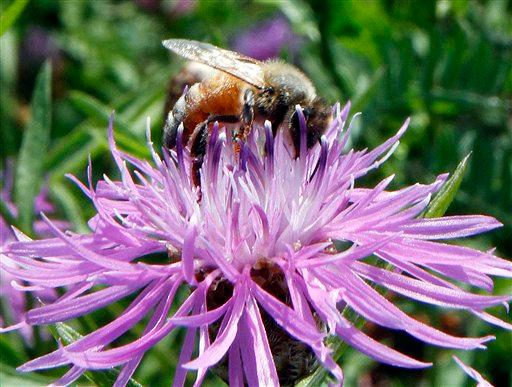Erin Beardsley
Author
LATEST
Artificial Swamps May Help Restore Indonesian Rainforest
The term “artificial” has acquired negative connotations in recent years. However, a recent study in Sumatra’s Harapan rainforest details not only the ecological benefits, but rather thenecessity, of improving artificial wetlands found along waterways in this rainforest ecosystem.
|
Forests Could be a Thrifty Way to Fight Ozone Pollution
Planting trees may be a cost-effective way to reduce ground-level ozone, a toxic component of smog that contributes to the deaths of about 152,000 people annually worldwide, according to new research. The study is the first to lay out a practical plan and examine the economic impacts of lowering ozone levels with trees.
|
New Gecko Species Discovered In Thailand
A research team based in western Thailand has discovered a new gecko species in the Kanchanaburi Province, a region renowned for its number of species found nowhere else in the world.
|
New Species Already Endangered
Given the scientific name Scytalopus gonzagai to honor Brazilian ornithologist Dr. Luiz Antonio Pedreira Gonzaga, scientists previously considered the Bahian mouse-colored tapaculo to be a population of an already known species, the mouse-colored tapaculo or S. speluncae, first discovered back in the 1990s.
|
Indigenous Tribe Leader Leaves a Legacy (photos)
Jesús Smith is sitting at his old wooden desk facing the entrance to his house. He’s hunched over, shirtless, and wearing his chunky reading glasses while writing copious notes by hand — a favorite pastime. When he sees the profile of one of his students, Julio, walking past his doorway, he yells, “Hey! I'll see you in class tomorrow!”
|
Turnout for Climate Change in NY Shatters Prediction
Around 570,000 people took part in marches around the world yesterday calling for action on climate change. By far the largest event was in New York City, which had been dubbed the biggest climate march in history weeks before.
|
Laws Against Elephant Slaughter Have Little—or Even Opposite—Effect
Ever since the World Trade ban on illegal ivory trade in 1989, there has only been an increased demand in the markets for ivory goods. Ivory is made from the teeth of elephants and other animals, and for these already endangered species, increased pressure is pushing them to the brink of extinction.
|
Artificial Swamps May Help Restore Indonesian Rainforest
The term “artificial” has acquired negative connotations in recent years. However, a recent study in Sumatra’s Harapan rainforest details not only the ecological benefits, but rather thenecessity, of improving artificial wetlands found along waterways in this rainforest ecosystem.
|
Forests Could be a Thrifty Way to Fight Ozone Pollution
Planting trees may be a cost-effective way to reduce ground-level ozone, a toxic component of smog that contributes to the deaths of about 152,000 people annually worldwide, according to new research. The study is the first to lay out a practical plan and examine the economic impacts of lowering ozone levels with trees.
|
New Gecko Species Discovered In Thailand
A research team based in western Thailand has discovered a new gecko species in the Kanchanaburi Province, a region renowned for its number of species found nowhere else in the world.
|
New Species Already Endangered
Given the scientific name Scytalopus gonzagai to honor Brazilian ornithologist Dr. Luiz Antonio Pedreira Gonzaga, scientists previously considered the Bahian mouse-colored tapaculo to be a population of an already known species, the mouse-colored tapaculo or S. speluncae, first discovered back in the 1990s.
|
Indigenous Tribe Leader Leaves a Legacy (photos)
Jesús Smith is sitting at his old wooden desk facing the entrance to his house. He’s hunched over, shirtless, and wearing his chunky reading glasses while writing copious notes by hand — a favorite pastime. When he sees the profile of one of his students, Julio, walking past his doorway, he yells, “Hey! I'll see you in class tomorrow!”
|
Turnout for Climate Change in NY Shatters Prediction
Around 570,000 people took part in marches around the world yesterday calling for action on climate change. By far the largest event was in New York City, which had been dubbed the biggest climate march in history weeks before.
|
Laws Against Elephant Slaughter Have Little—or Even Opposite—Effect
Ever since the World Trade ban on illegal ivory trade in 1989, there has only been an increased demand in the markets for ivory goods. Ivory is made from the teeth of elephants and other animals, and for these already endangered species, increased pressure is pushing them to the brink of extinction.
|

